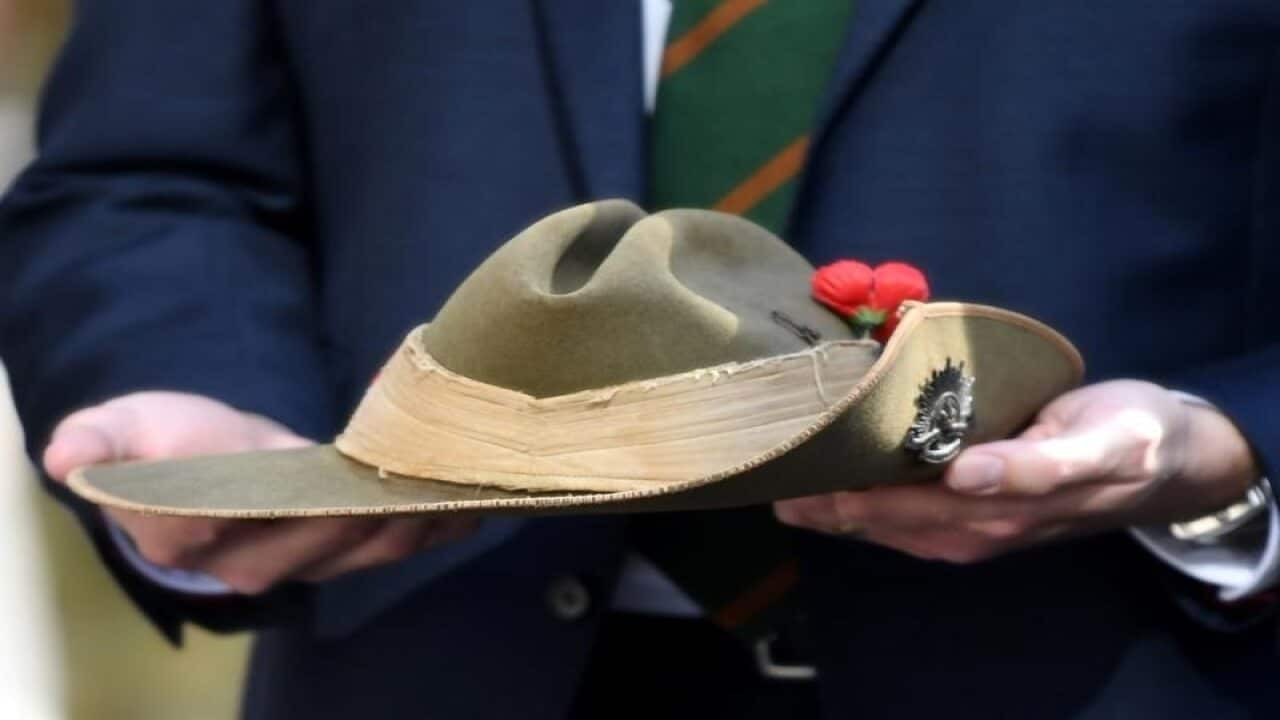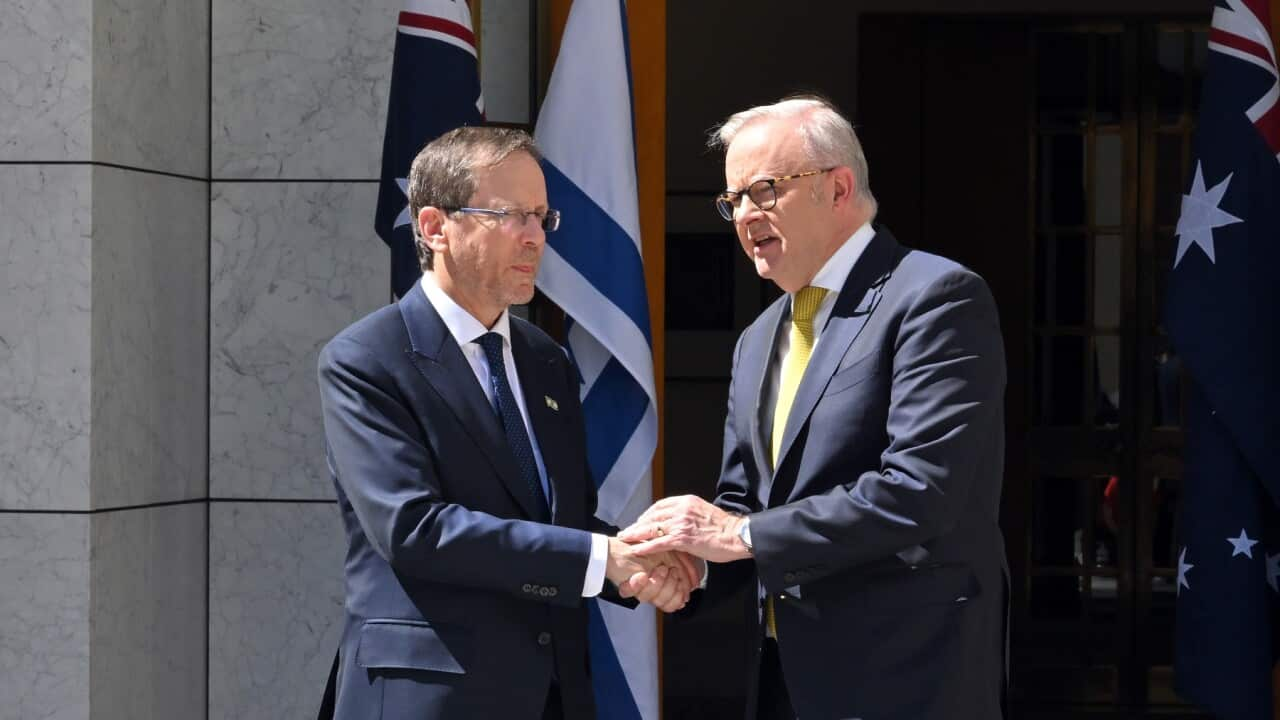“Close your eyes and don’t look.”
82-year-old Melbourne resident Giuseppe Morsanuto remembers his father’s words from over 75 years ago when he was walking through his village in Italy where bodies of eighteen resistance fighters were hanged for public display.
Mr Morsanuto says the image has remained in his memory forever.
He and his wife Ivana participate in the Anzac Day march every year. But the day is special to them for another reason. It’s also Italy’s Liberation Day that marks the end of the Nazi occupation of the country in 1945 and the victory of the anti-Fascist Resistance.
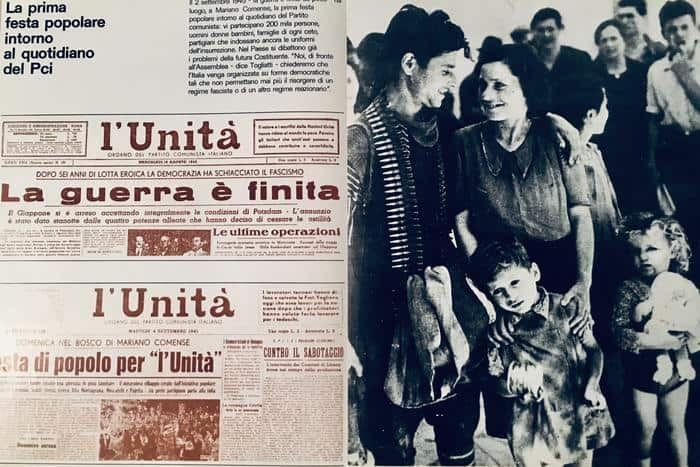
As a child growing up in the war, Mr Morsanuto savored the taste of freedom for the first time on 25th April 1945, when he was seven.
“About twenty musicians gathered in a farmhouse and you could see them playing, jumping...the joy and happiness, knowing that the partisan forces had signed the peace treaty with the Germans was an incredible thing," he told SBS Italian.
“That day will remain in mind all my life. It seemed impossible that we would ever have peace and that we’d ever be free again,” he says. “People were euphoric to see the dictatorship was driven out once and for all. Peace and freedom had returned."
April the 25th is the Liberation, when we freed ourselves from the hell we had in Italy. We finally found freedom. At the same time, we also remember these poor, unfortunate young men who died in Gallipoli and made a huge contribution to their nation.
The day is celebrated in a big way and it's a public holiday in Italy. But freedom came at a huge price. The 82-year-old secretary of the Circolo Resistenza Sette Fratelli Cervi of Victoria recalls the many sacrifices Italians, including his parents, made.
He says his family was kept under constant control and the fascists knew that they were the partisans informants and supporters of the resistance movement.
"The Germans used to leave the partisans hanging at least three or four days, so people could see and get scared,” he says.
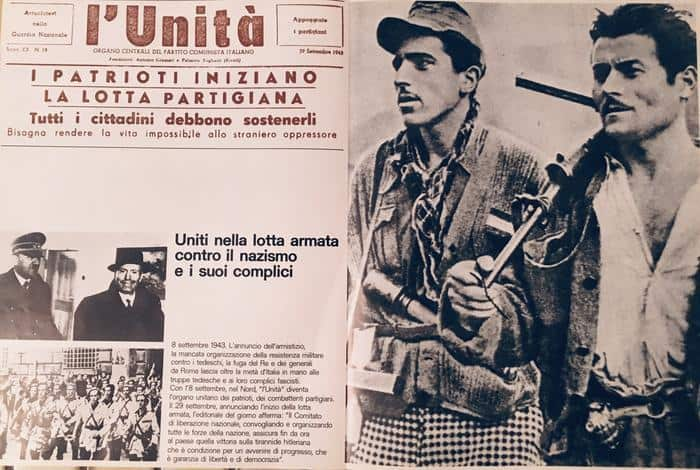
It was to intimidate the population against collaborating with the partisans.
“Many had joined the Fascist party, even against their will, so that their families don’t face any repercussions. But many don't. Many suffered torture and died,” he says. "It was difficult to choose which side to be on. You have your ideals. What happens, happens. If they kill me, they kill me, but I don't change my ideals, just like my parents."
He says many ordinary Italians contributed to Italy’s freedom, like his parents, who never described themselves as “heroes”.
His mother was a so-called staffetta partigiana, women that were responsible for ensuring the connections between the brigades for maintaining contacts between the partisans and their families, sometimes they also were nurses.
They moved around on bicycles and Mr Morsanuto says he remembers seeing his mother inserting pieces of paper into the seat tube of her bicycle and just go.
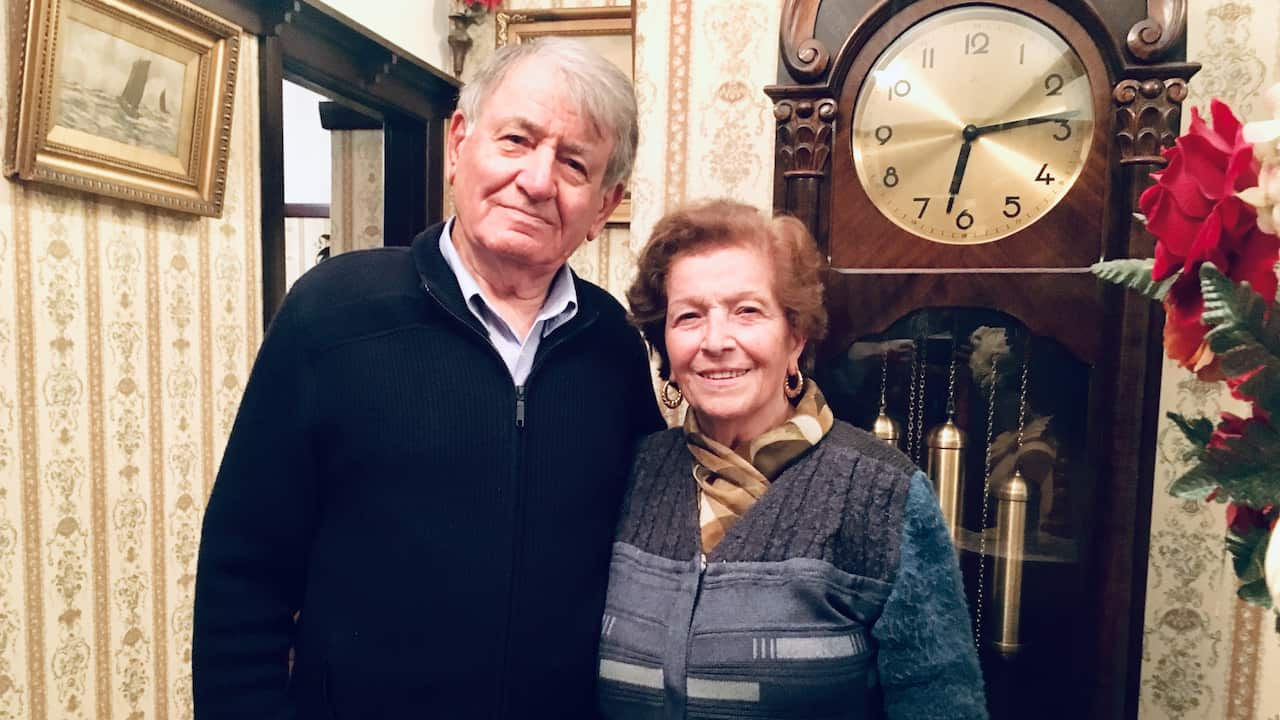
She was bringing messages from one partisan to another and thousands of partisans relied on these women for communication and supplies of food and ammunition.
"Without them, the partisans could not have continued their battle. These brave girls made the greatest contribution to the fight for liberation in Italy,” he says.
Having lived in Australia for nearly sixty years with his wife Ivana who is the President of Circolo Resistenza Sette Fratelli Cervi of Victoria, he says while Anzac Day is a sombre occasion, Liberation Day symbolises peace and rebirth of democratic Italy.
"April the 25th is the Liberation, when we freed ourselves from the hell we had in Italy. We finally found freedom," he says. “At the same time, we also remember these poor, unfortunate young men who died in Gallipoli and made a huge contribution to their nation."
Listen to SBS Italian every day from 8am to 10am. Follow us on Facebook, Twitter and Instagram.
